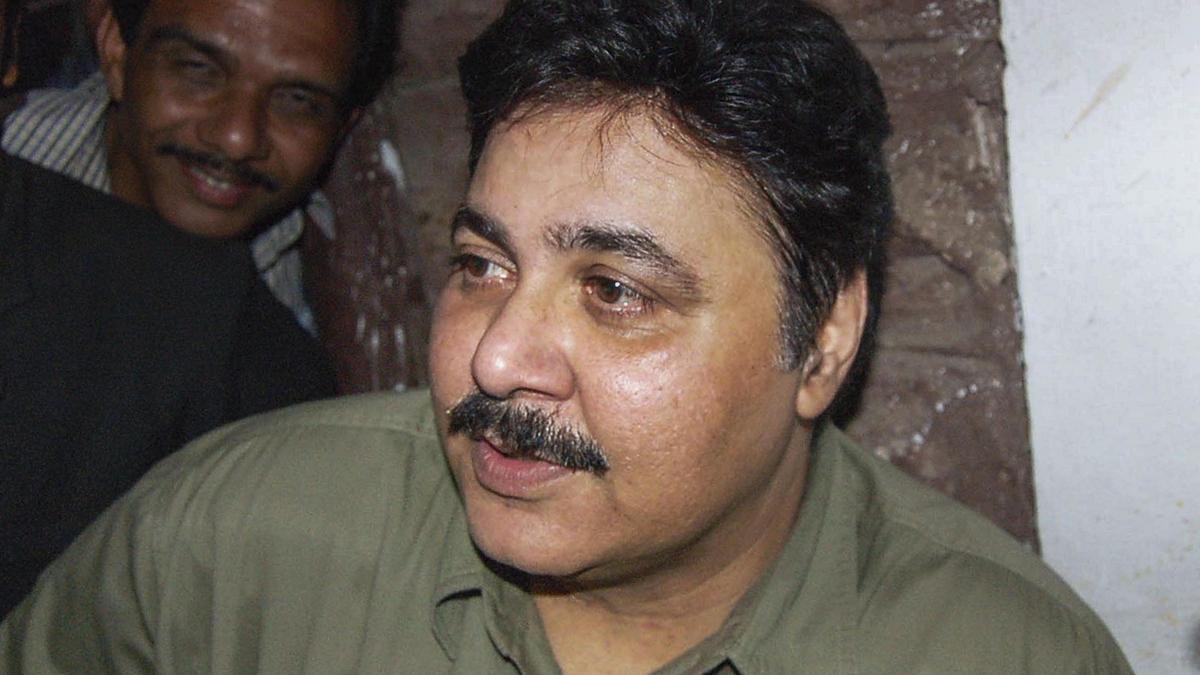A little while ago A Nice Indian Boy, a romantic comedy directed by Roshan Sethi, on love, identity and cultural belonging, turned into a censorship battle over a single word in its title: Indian. Sethi is the latest casualty of the Central Board of Film Certification (CBFC’s) scrutiny of movie titles — referencing country, religion, caste or queer themes. His film quietly released in India on October 17 as A Nice Boy, stripping it of its very identity.
Moviegoers were unaware of its quiet erasure. “At the end of the day, you tell yourself — at least, it’s releasing in theatres,” says Avinaash Jumani, CEO, PictureWorks, the film’s India distributor. The film stayed in theatres for only a week and cinephiles likely missed it.

The removal of ‘Indian’ from the title even kept multiplex audiences, seeking romcoms about the Indian diaspora, at bay.
The title is the first thing written on a script, indicating what the story stands for. A title change indicates the mood of the current moment in a nation. When The Hindu reached out to CBFC members, they declined to speak on record. One source close to the board said, title changes “depend on the committee [examining or revising] viewing the film. If the film’s content [title or subject matter] is against the mandate set by the board, they are at liberty to suggest changes.”
Made in India
The makers of A Nice Indian Boy were hoping for a seamless certification process when they submitted their film to the CBFC. After all, what could go wrong with a DDLJ-esque film about a young man introducing his lover to his traditional parents — a familiar romcom trope. But there was a plot twist: the couple in question is gay.

The makers of A Nice Indian Boy were hoping for a seamless certification process.
It didn’t matter that the movie earned a rare 95% rating on the review aggregator Rotten Tomatoes. Amid a few routine cuts, the CBFC had one non-negotiable ask. “They said: drop the word ‘Indian’ if you want your film certified for a theatrical release,” says Jumani, who had to personally visit the CBFC office for a meeting to plead his case, but in vain. Their major reservation: how can a “nice Indian boy” be gay?

The removal of ‘Indian’ from the title even kept multiplex audiences, seeking romcoms about the Indian diaspora, at bay. With the presence of Karan Soni, Deadpool’s cult-favourite cab driver, and Indian-American comedian Zarna Garg, who found global fame with her sharp commentary on immigrant life, there was every reason to draw desi audiences.
One too many
This isn’t an isolated incident. Over the years, Indian film titles have been hacked and pruned, most famously Sanjay Leela Bhansali’s Padmavati becoming Padmaavat (2018), Malayalam film Oru Bharatha Sarkar Ulpannam (that translates to ‘A government of India Production’) getting retitled as Oru Sarkar Ulpannam (2024), and Janaki v/s State of Kerala releasing as Janaki V v/s State of Kerala (2025), when the CBFC objected to the use of a Hindu deity’s name in the movie title.

Malayalam film Oru Bharatha Sarkar Ulpannam got retitled as Oru Sarkar Ulpannam (2024).
It is almost telling that titles with ‘India’ or ‘Indian’ are the most scrutinised. Producer and partner at Ellipsis Entertainment, Tanuj Garg recalls his ordeal with Emraan Hashmi starrer Cheat India (2019), which got cleared for release only after being renamed Why Cheat India. “The CBFC withheld certification, citing the word ‘cheat’ could be perceived as normalising malpractice in India. It felt more like an instance of moral policing than certification,” says Garg, adding, “It also diluted the irony of the original title — a social commentary on corruption in the education system.”
A queer drama
For queer drama Aligarh’s writer and editor Apurva M. Asrani, the controversy around titles is familiar. He recalls how the mayor of Aligarh insisted on dropping the title, stating how associating the city’s name with a gay protagonist could show it in bad light. “The same ideology drives A Nice Indian Boy — ‘gay’ and ‘Indian’ cannot coexist,” says Asrani. When the trailer was being cleared for television, they were told to mute ‘gay’ and ‘homosexual’ because ‘children would be watching’. For Asrani, the issue is more cultural than bureaucratic. Even today, he says, we use “gay” as a slur. “If the term itself weren’t stigmatised, I doubt anyone would object to it in titles.”

Asrani recalls how the mayor of Aligarh insisted on dropping the title.
The censorship absurdity is captured in Varun Grover’s short, Kiss (on Mubi), about a censor board demanding the shortening of a kissing scene between two men. It feels less like satire and more like a documentary in motion, underlining how personal prejudices stifle storytelling.

Akhand Rajputana Sevasangh activists protest against the movie Padmavati in 2017. | Photo Credit: Vijay Bate
Jhumani admits that the erasure still unsettles. “While A Nice Indian Boy can be found on Rotten Tomatoes or iMDb, its Indian-release title A Nice Boy, does not have a separate listing on these websites. This region-specific tampering fractures the film’s overall identity.” His observation resonates even more when placed alongside Rohan Kanawade’s queer drama Sabar Bonda (Cactus Pears), a Marathi-language Sundance winner that enjoyed a limited, but favourable run in September. What’s striking, however, is how the film continues to sustain its momentum through a parallel model of distribution: “request a show in your city”, where audiences can request a local screening by filling out a form on Kanawade’s Instagram. Could this be a way for indie queer films to survive?
The other casualties
The Punjabi film Panjab ’95 still remains locked in a censorship battle since director Honey Trehan first submitted the film in 2022. Trehan remembers the ordeal all too well. “The original title was Ghalughara, which means ‘massacre’. This got rejected at its onset. I had to then submit three more titles. After finally settling on Panjab ’95, strangely enough, they got cold feet,” he says. The board then suggested renaming it Satluj, after a river. But he persisted, recalling how the CBFC asked him to make 127 cuts.

Janaki v/s State of Kerala released as Janaki V v/s State of Kerala (2025).
“What the film should be called is solely the director’s prerogative — it is tied to the story. But when CBFC begins to push a majoritarian agenda, it is alarming,” Trehan asserts, while pointing to the deafening silence surrounding Dibakar Banerjee’s dystopian drama Tees, originally titled Freedom, which has been indefinitely shelved by Netflix.
Even producers, often perceived as pragmatic mediators, are noticing a trend. “When titles are forcibly changed by those who do not understand the creative intent behind it, it could create a disconnect with the audience,” says producer and distributor Girish Johar. Commenting on A Nice Indian Boy, he says, “The censor board clearly did not want Indianness to be associated with queerness.”
Devil in the detail
Data from CBFC Watch (cbfc.watch), a database of censorship information for nearly 18,000 films released between 2017 and 2025, created by developers Aman Bhargava and Vivek Matthew, reveals the board’s pattern: of all the films in their database, roughly 65 cases involve substantive modifications to the content of the title. The interpretations appear highly contextual, Bhargava says, observing that “there’s no single rule applied uniformly across cases, which makes patterns difficult to predict”.
The project compiles information from the E Cinepramaan portal, CBFC’s official online certification system, which has published cut lists since 2017 for public access. However, a few months ago, the board quietly made automated data collection from the portal impossible — a move that Bhargava says has made monitoring censorship trends far more difficult. The cuts are still visible but only if you scan the censor certificate shown before a movie in theatres or if displayed on a notice board. But from the data, he does see modifications to certain words used in potentially negative contexts.

A still from Lipstick Under My Burkha.
This unpredictability of the board’s final outcome is also forcing filmmakers to exercise pre-emptive self-censorship. “Some titles could just trigger the CBFC, and filmmakers choose to avoid it from the very start — and submit a title that will be least touched by censors’ scissors,” Johar says.
“Today, filmmakers must go to the High Court directly — an expensive and time-consuming affair. It is better to comply than contest.”Pahlaj Nihalani Former CBFC chairperson
Self-censoring: comply than contest
The discomfort with certain words is not new. In 2017, Sanal Kumar Sasidharan’s Malayalam indie horror film Sexy Durga was cleared only after being retitled S Durga. Former CBFC chairperson Pahlaj Nihalani defends such decisions, saying, “If the provocative nature of a title could incite conflict or hurt sentiment, the onus is on the board to change it.”
Earlier, the Film Certification Appellate Tribunal (FCAT) heard appeals against decisions of the CBFC, which famously allowed 2016 feminist drama Lipstick Under My Burkha to be released with minimal cuts. However, the tribunal was later dissolved. Nihalani, referring to the removal of this layer of accountability, says, “Today, filmmakers must go to the High Court directly — an expensive and time-consuming affair. It is better to comply than contest.”
The writer is a Mumbai-based freelance journalist.

 12 hours ago
1
12 hours ago
1























 English (US) ·
English (US) ·